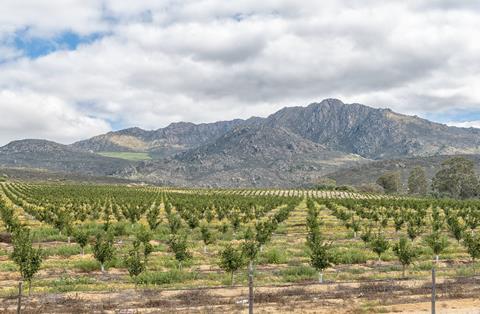Exporters hope for the best but are already casting their eye at alternative markets
South African fruit growers are looking at ways to mitigate the impact of Trump’s new tariffs on the sector.

The Citrus Growers Association (CGA) said it welcomed support measures announced by the government. Citrus is perhaps the most affected fresh produce industry but with a substantial volume of this year’s crop having already been shipped before the tariff deadline, the real pain will likely not be felt until next year.
Table grape and stonefruit exporters will have to deal with this new reality much sooner. Both sectors have made substantial inroads in the US during the past few years and when their season starts later this year they will have to find alternative markets.
Although all plans are still in the melting pot, the promotional programmes started in the US during the past two years may be put on ice. Instead, grape growers are expected to focus on Canada, which has been a growing and stable market in recent years.
“We have consistently pointed out the vulnerability of small rural communities to external shocks such as these. We do hope that these measures are implemented expeditiously to protect rural livelihoods,” the CGA said.
The CGA also welcomed calls for greater market diversification, as the citrus industry works towards its goal of exporting 260mn 15kg cartons by 2032.
“We already export to over a hundred destinations as the second biggest citrus exporter in the world. At this level of diversification, and considering our growth potential, all markets are crucial,” said Boitshoko Ntshabele, CEO of the CGA.
“We need to work on some of our existing markets to deepen access by improving conditions related to sanitary and phytosanitary measures and tariffs. Some of the existing markets are underutilised precisely because of the higher tariffs levied on our fruit.
“We have previously indicated that trade negotiations take time and spoke of limitations in government capacity. Perhaps now is the time to work closer through private public partnerships to fast-track diversification. South Africa should also use the G20 sidebar discussions to advance market diversification with counterparts.”
However, Ntshabele also noted that the CGA continues to urge the South African government to focus on securing a mutually beneficial trade deal with the US, or an US exemption for seasonal fresh produce. “The US exemption of Brazilian orange juice represents some good news for citrus in general and hopefully points towards a precedent for South Africa,” he said.
Ntshabele pointed out that quality, fresh South African citrus plays a significant role in ensuring year-round supply of citrus for US consumers, and in avoiding possible citrus price increases in the US.
“We urge the US to take this into account, as well as the fact that we supply citrus when the US growers themselves are out of season,” he concluded.



